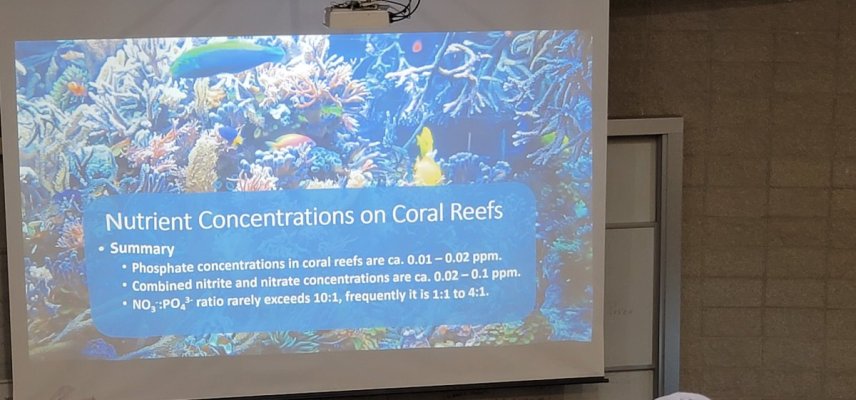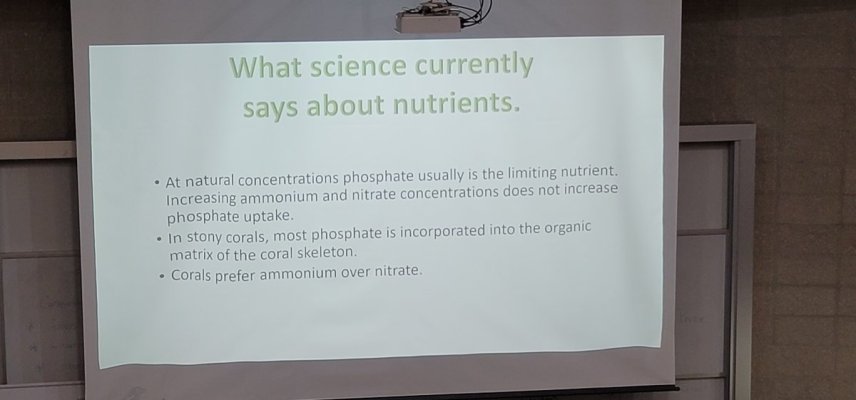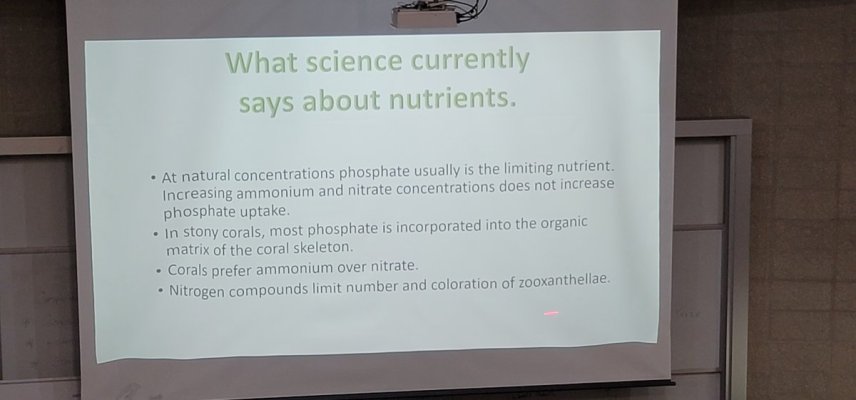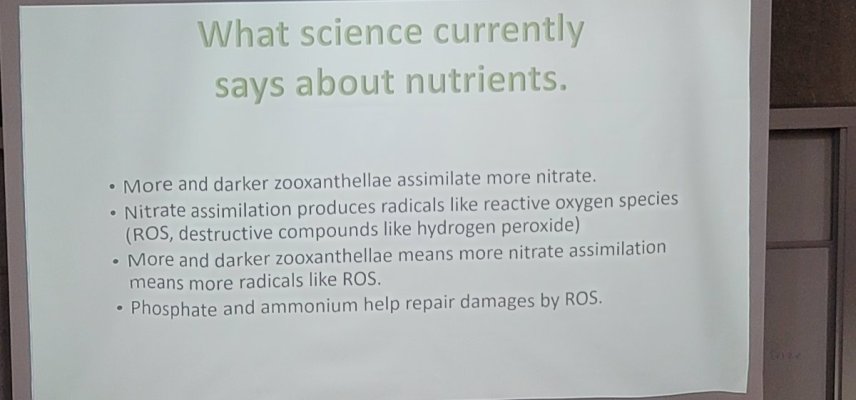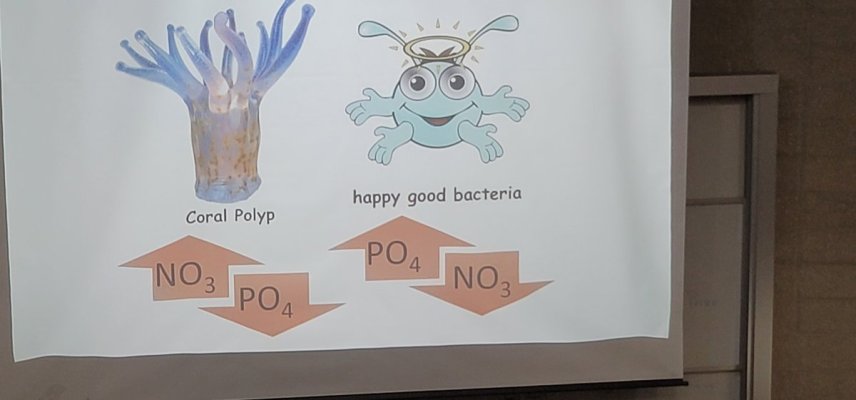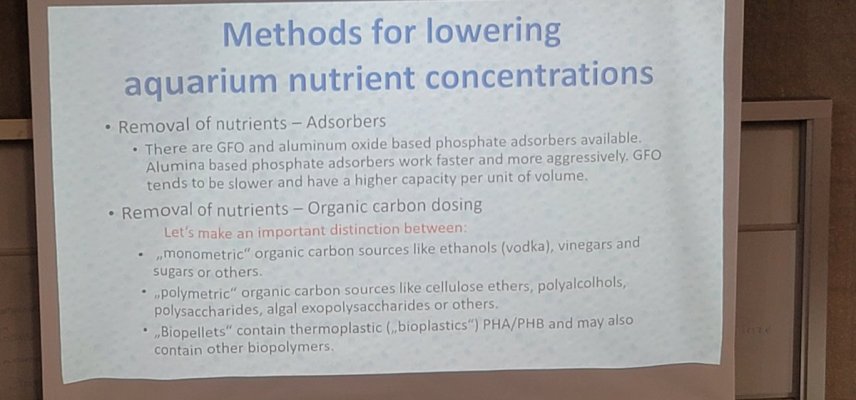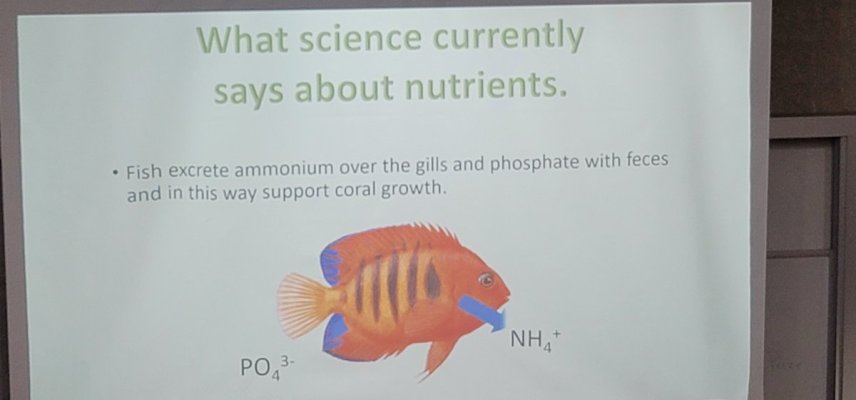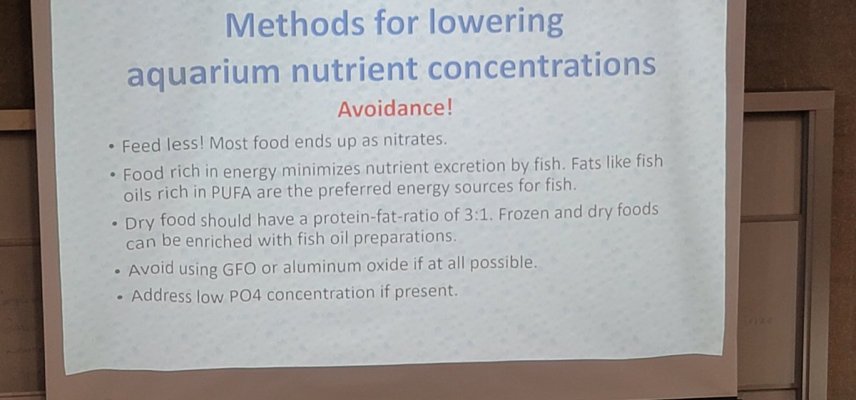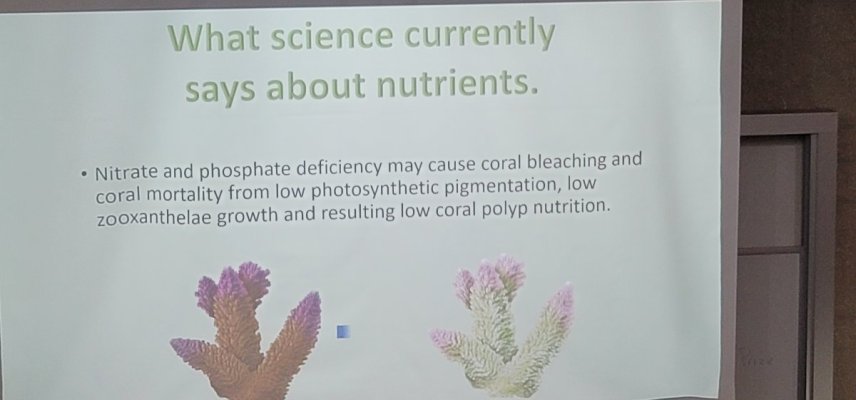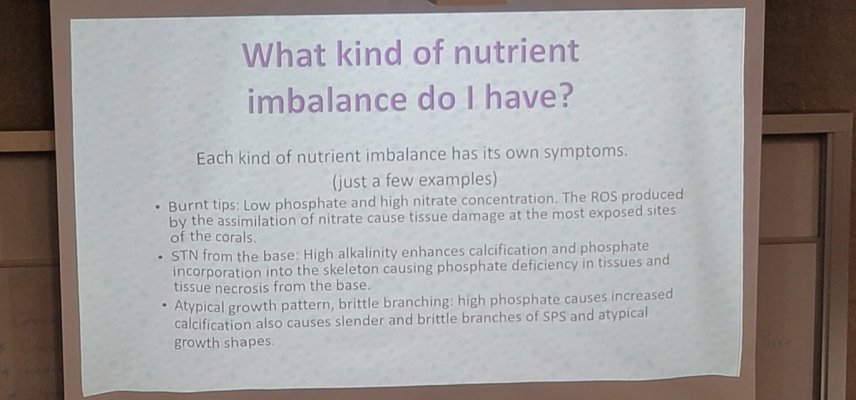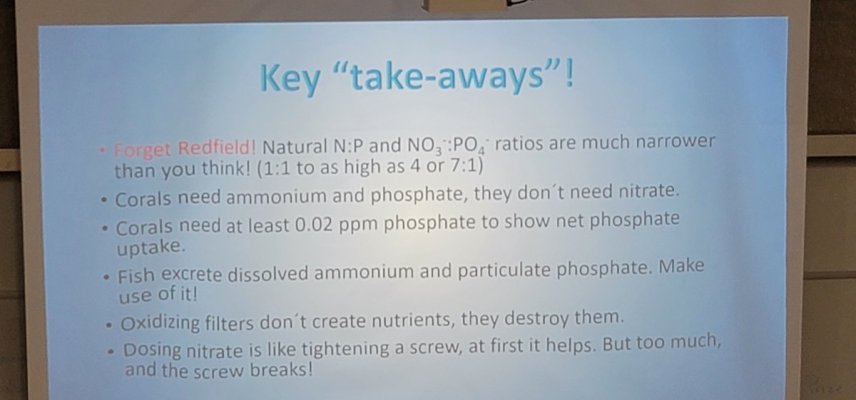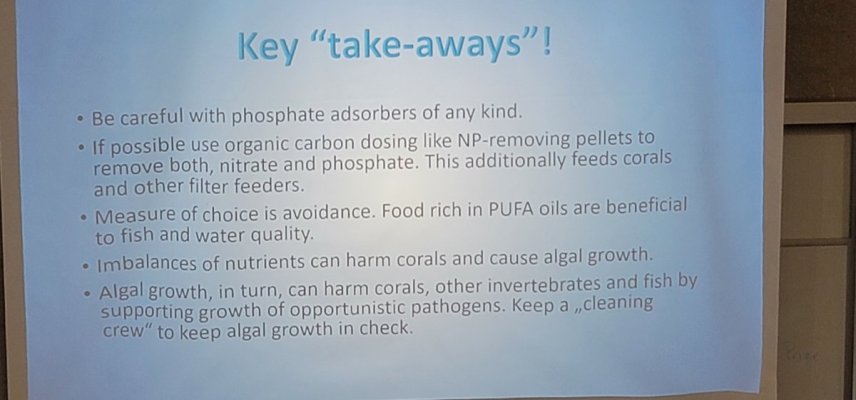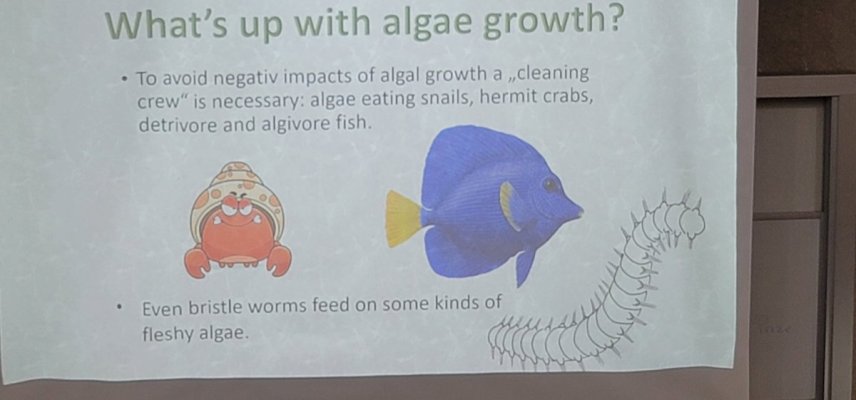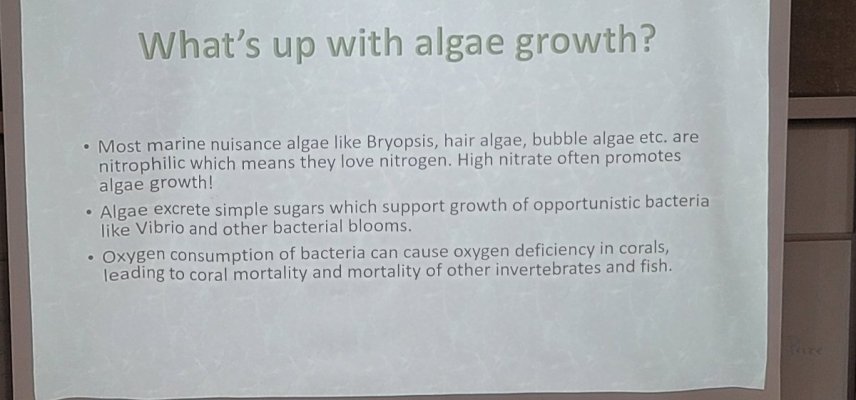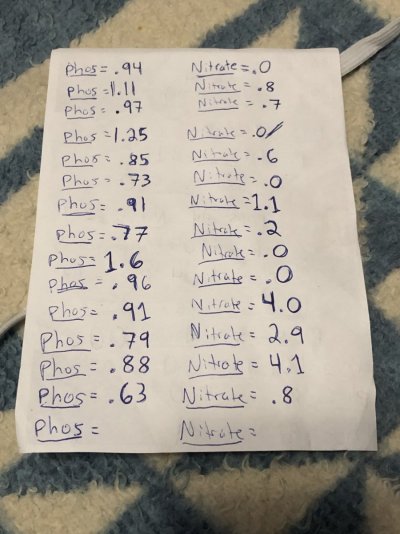From Lou Ekus seminar last weekend at FFM in Connecticut.Show me any legitimate source saying 1.0+ppm of phosphate is in no way detrimental to your tank that is not a 70 page research paper done by one person.. Kind of hard to believe seeing the ocean has basically 0 phosphates.
My tank is 2+ years strong. Haven't changed my lightning, haven't changed my flow, haven't changed really anything other than the fact corals are growing into each other.. Really the only param fluctuating each month is my nutrients. Sorry for getting frustrated, it is just soo annoying at this point when different hobbyists come in and just "upturn" all the advice I have gotten from everyone else. There's a plethora problems that it could be still, and I just have to make the ecosystem as "good/proper" as possible for the life inside. This thread isnt called "please help me with my corals" - this thread is called "Nitrae/Phosphate Ratio - Super high Phosphate, and bottoming out Nitrate"...
With this idea, I am shooting for a certain nutrient number. I am trying to go as slow as possible not to bother everything. Part of the goal of getting phosphates down, is to help nitrates go up. That alone should be reasoning enough not to accept very high phosphates like this..
Regardless, thank you for chiming in and attempting to help. I also hope the specific corals not doing the best start to improve. For the most part though the tank is looking all right. Have a couple RFAs slowly shrinking which is what is bothering me the most.
